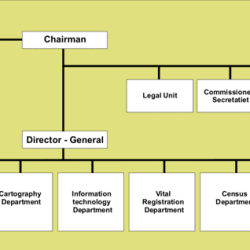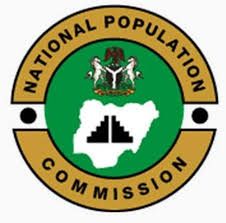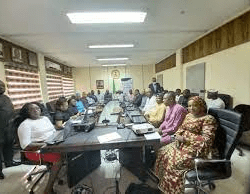
The National Population Commission was established in April 1988 by Decree No. 23 (Now Act) of 1989 (NPC Act cap 67 2004 LFN).
The Commission comprises a chairman and 37 members representing each of the states of the federation and the Federal Capital Territory (FCT).
The NPC operates a three tier administrative and technical structure with offices at the National, State and Local Government levels.
The Director-General is technical head and Chief Accounting Officer of the NPC.
At the headquarters, the commission works through 15 Departments, and 2 Units.
The Commission has offices in all the 36 States and the FCT headed by State Directors, and in the 774 Local Governments headed by Local Government comptrollers.
The commission derives its powers and functions primarily from the Constitution of the Federal Republic of Nigeria.
The NPC Act, Section 24 of the 3rd Schedule of the 1999 Constitution gives the Commission powers to:
Undertake the enumeration of the population of Nigeria periodically, through censuses, sample surveys or otherwise
Establish and maintain a machinery for continuous and universal registration of births and deaths, throughout the Federation;
Advise the President on population matters
Publish and provide information and data on population for the purpose of facilitating economic and development planning, and
Appoint and train or arrange for the appointments and training of enumerators or the staff of the commission
The National Population Commission Act Cap N67 of 2004 further gives the Commission powers to:
Prepare and maintain a national framework, including locality list and house numbering, for the delineation exercise for census and sample surveys in each local government area in Nigeria
Collect, collate and publish data on migration statistics
Research and monitor the National Population Policy and set up a National Population Information Data Bank
Disseminate information and educate the general public about the functions of the commission under this Act
Do all such things as may be considered by the Commission to be necessary, desirable, expedient, supplementary or incidental to the performance of the functions or the exercise of the powers conferred on the commission under this Act.
In addition to the above statutory mandates, the commission coordinates population activities across sectoral lines in line with the presidential directive of May, 2003.










